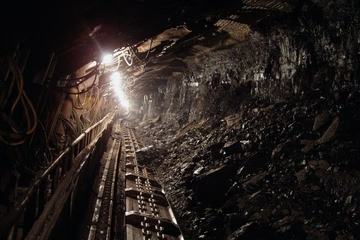Geologist: authorities do not learn from their mistakes, I fear these floods could exceed those of 2014

Professor Nedim Suljic from the Faculty of Geology and Civil Engineering in Tuzla spoke to N1 on climate change, flooding issues, and the protection of waterways in Bosnia and Herzegovina. He began by recalling the severe floods of 2014, emphasizing that similar situations are recurring every two to three years.
Oglas
“I fear that this year’s floods, which have been happening since last night, may even surpass the May floods of 2014. I don’t think that agencies, local and municipal authorities, or the organizations responsible for flood protection in both Bosnian entities are doing enough,” Suljic stated.
He explained that flash floods and streams naturally occur during intense and prolonged rainfall, causing significant damage to infrastructure and buildings. However, he pointed out that authorities have not learned from past experiences, particularly from the 2014 disaster. Suljic criticized the lack of maintenance of waterways, especially the accumulation of sediment near bridges, which leads to quick flooding when water levels rise.

In terms of first-category rivers like the Bosna and Neretva, Suljic pointed out that their banks are overgrown with trees and shrubs, which create resistance and make it easier for water to spill over. He emphasized the need for better organization and more serious attention from local, cantonal, and entity-level authorities.
Suljic also highlighted the drastic weather changes, recalling the dry summer months followed by 24-hour rains that have now caused catastrophic consequences. He linked this to both climate change and neglect in maintaining waterway systems, storm drains, and canals near roads, particularly in rural areas.
In a more informal tone, Suljic expressed frustration over the blocked roads in Jablanica and Mostar. “The roads are literally blocked, and the roads to Konjic and Mostar are closed,” he noted. The heavy rainfall has also triggered landslides, adding to the devastation. Suljic explained that more landslides are expected, especially near roads cutting through steep terrains.
He warned that Bosnia’s flood defences, especially embankments along major rivers like the Sava, are insufficient. “We have some embankments on the Sava’s right bank, but there is no space for proper flood defences along other rivers like the Bosna and Spreca,” Suljic added. He mentioned existing plans for protective embankments but said legal issues over private land are slowing their construction.
Suljic stressed that authorities must prioritize cleaning waterways to prevent sediment buildup, which reduces water flow and leads to flooding, even during less severe floods.
Finally, the professor expressed hope that this year won’t be a repeat of the 2014 floods when 11 people died in Doboj. “I sincerely hope it won’t happen again, at least not to that extent. But the key is that preventative measures need to be taken. With three months of drought, why weren’t the waterways cleaned during that time?”
Kakvo je tvoje mišljenje o ovome?
Učestvuj u diskusiji ili pročitaj komentare
Oglas
Kakvo je tvoje mišljenje o ovome?
Učestvuj u diskusiji ili pročitaj komentare
Oglas
NAJČITANIJE
Oglas
Oglas
Najnovije
Oglas
Oglas





 Srbija
Srbija
 Hrvatska
Hrvatska
 Slovenija
Slovenija



























































